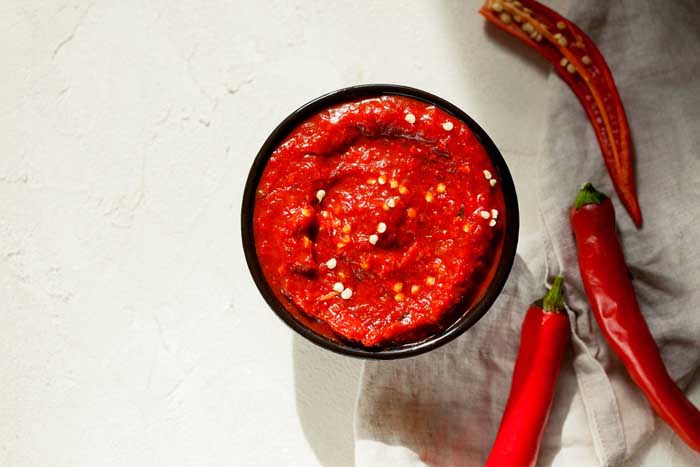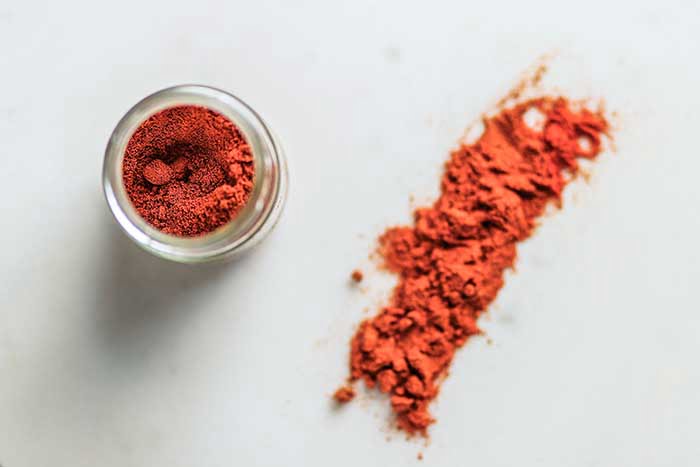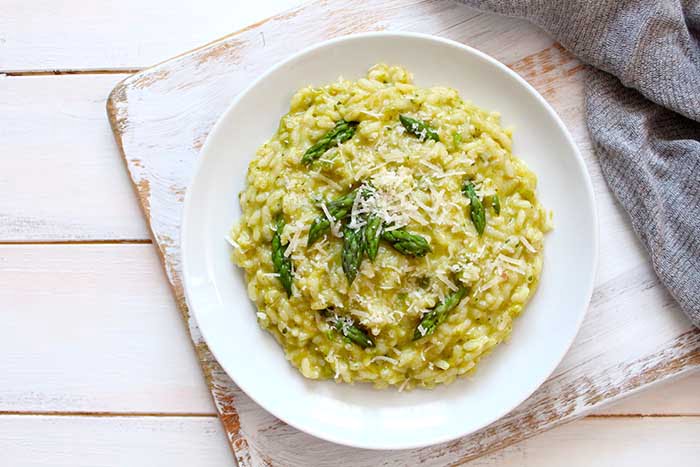Need a last-minute citric acid substitute? From lemon juice to apple cider vinegar, these four best alternatives will give you the preservative ingredient you need.
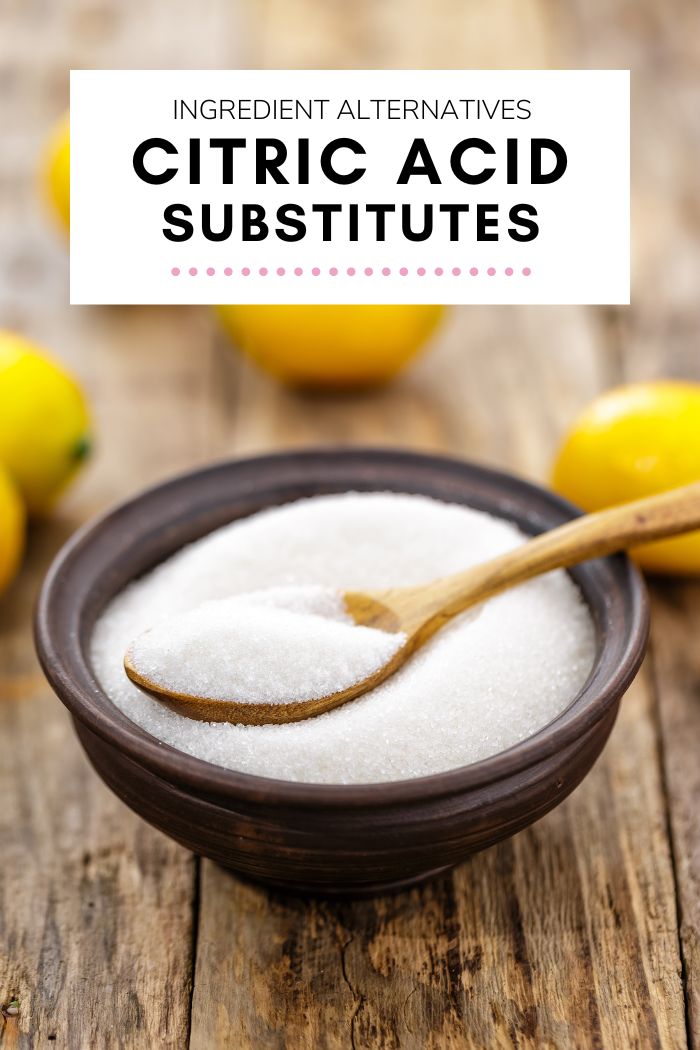
Citric acid is commonly used as a preservative in food products such as jams, jellies, and even some drinks. It’s also used as a flavoring agent in food products like soft drink syrups, fruit or vanilla ice cream, and baked goods like cookies, and candies.
It might not always available at your local grocery store or pharmacy. In this article, we’ll look at the different ingredients that will work just as well for cooking and preserving recipes.
Lemon Juice
As the name says, this is the juice from a lemon. Lemon juice contains water, sugar, amino acids, vitamins, phenolic acids, and citric acids. The acidity that is in lemon juice is what makes it such an excellent substitute for citric acid. Lemon juice is also just as sour as citric acid. The great thing about lemon juice as a substitute is that it is just as sour, but it has the added benefit of having vitamin C.
It is packed full of nutrients, and this is another reason it is a good substitute for citric acid. one lemon will give you 3grams of citric acid, so you may need to squeeze quite several lemons to get the right amount of citric acid. You may use this to know how much lemon juice to use for a certain amount of citric acid. One tablespoon of citric acid can be substituted by between 4 and 5 tablespoons of lemon juice.
Citric acid often comes in the form of powder. So when you substitute it with lemon juice, you would need to alter the other ingredients in liquid form. The lemon juice adds excess liquid that wouldn’t ordinarily be there if you were to use citric acid in its powder form. This is about the best substitute for citric acid.
Tartaric Acid
This is an acid that naturally occurs in fruit such as grapes. It’s a dicarboxylic acid and is often used in different types of recipes. Both tartaric acid and citric acid are from fruit and can be used as souring agents. The difference being that citric is from citrus fruits while tartaric is from grapes, but the tastes are similar. It has similar health benefits as citric acid, which helps make it a good substitute.
Tartaric acid is where wines get their acidity. It also comes in powder form, just like citric acid. This means that you will not need to alter other ingredients to accommodate the substitute. However, it has a more acidic taste so if this is not what you are after, then use it sparingly. If your recipe calls for one teaspoon of citric acid, substitute it with ¼ teaspoon of tartaric acid. You can then add more if necessary, but it’s better to add than to start with too much and not remove it.
White Distilled Vinegar & Apple Cider Vinegar
Citric acid is tart, and any recipe that calls for it should therefore have a substitute that can match this tartness. White Distilled Vinegar and Apple Cider Vinegar will give you the same sourness and tart taste citric acid synonymous. The great thing about white vinegar is that it doesn’t change the other ingredients in the recipe. As such, you won’t need to worry about the taste or texture of your recipe changing.
White distilled vinegar has a similar taste to citric acid, making it a good substitute. Vinegar, however, is not as acidic as citric acid, and as such, you may need to taste to know if the taste has been reached or not. To substitute, you will need to add three times the amount of vinegar as you need citric acid. So, for instance, if the recipe calls for one tablespoon of citric acid, you will need three tablespoons of vinegar.
Even though white vinegar is not as strong and you may need to use more, you must remember it may change the taste of your dish. Also, since you will need to use more vinegar than citric acid, adding more liquid to the recipe, you may need to alter the other liquid ingredients. This way, you don’t end up with a runny meal.
Crushed Vitamin C Tablets or Ascorbic Acid
Ascorbic acid is found in citrus fruits, and it has several uses, most of which are similar to those of citric acid. It is also the scientific name for vitamin C, so don’t let it scare you. This is an excellent substitute for citric acid. It acts as a preservative, and it can be used in place of it, using a ratio of 1:1. This means if the recipe calls for one tablespoon of citric acid, you can use one tablespoon of crushed vitamin c tablets, also known as ascorbic acid.
Since the tablets, when crushed, will form a powder, it means the consistency is the same, and as such, you will not alter the recipe too much. However, citric acid is different from ascorbic acid in that it is weaker. The differences in the two make this substitute slightly less suitable, especially compared to lemon juice and the other substitutes that we have gone through in this article.
FAQ
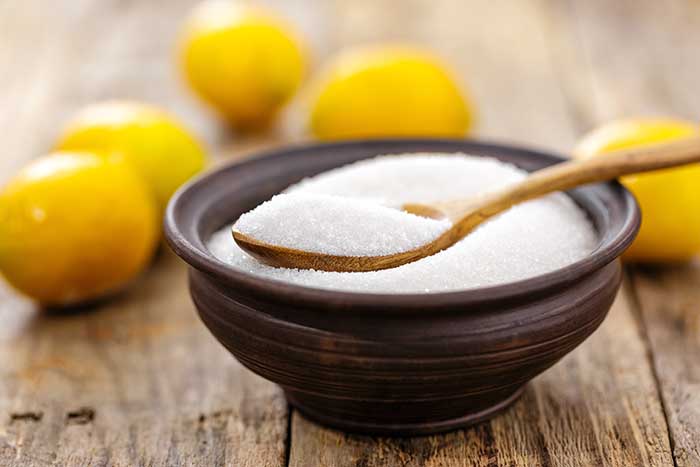
Can you make citric acid at home?
Yes, you can make your citric acid at home by mixing citric acid crystals with distilled boiled water.
Is citric acid the same as white vinegar?
While both are acids, they are not the same. Citric acid is an organic acid, while white vinegar is acetic acid.
What is stronger citric acid or vinegar?
Citric acid is stronger than vinegar, this is why when substituting, you will need to use more vinegar than citric acid.
What happens when you mix citric acid and vinegar?
When you mix the two, carbon dioxide forms and this gives rise to bubbles forming. The addition of vinegar makes the mixture bubble even more.
Is apple cider vinegar citric acid?
No, these two are different. Apple cider vinegar contains citric acid, but the two are not the same.
Can I use lemon juice instead of citric acid for mozzarella?
Yes, you can. For this recipe, you may use 1/8 cup of lemon juice can for every ½ a teaspoon of citric acid in recipes that require mozzarella.
Is citric acid the same as baking soda?
No, they are not the same thing. But citric acid can be used to help activate baking soda.

